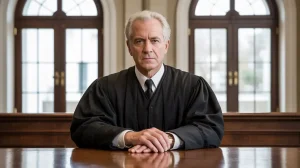Can both people in a domestic violence case end up with restraining orders against each other in North Carolina? Mutual domestic  violence restraining orders, sometimes called mutual 50B orders, are allowed in limited circumstances under Section 50B-3(b) of the North Carolina General Statutes. When a trial judge enters mutual orders without making the detailed findings that the law requires, that can cause problems.
violence restraining orders, sometimes called mutual 50B orders, are allowed in limited circumstances under Section 50B-3(b) of the North Carolina General Statutes. When a trial judge enters mutual orders without making the detailed findings that the law requires, that can cause problems.
That issue was at the heart of Shuler v. Donahue, a recent decision by the North Carolina Court of Appeals. In that case, both parties received protective orders from the same hearing, yet the appellate court vacated one of them because the trial judge had not followed the proper statutory steps. The opinion serves as a reminder that even when both people allege abuse or harassment, the law limits how and when a court can enter mutual restraining orders.
If you are involved in a 50B case in Wake County, it makes sense to speak with a lawyer who regularly handles domestic violence protective order hearings. Fanney Law Office in Raleigh represents clients in both criminal and civil DV protective order cases. Call our Raleigh office to schedule a confidential consultation: 919-617-7009
 North Carolina Criminal Law Updates
North Carolina Criminal Law Updates